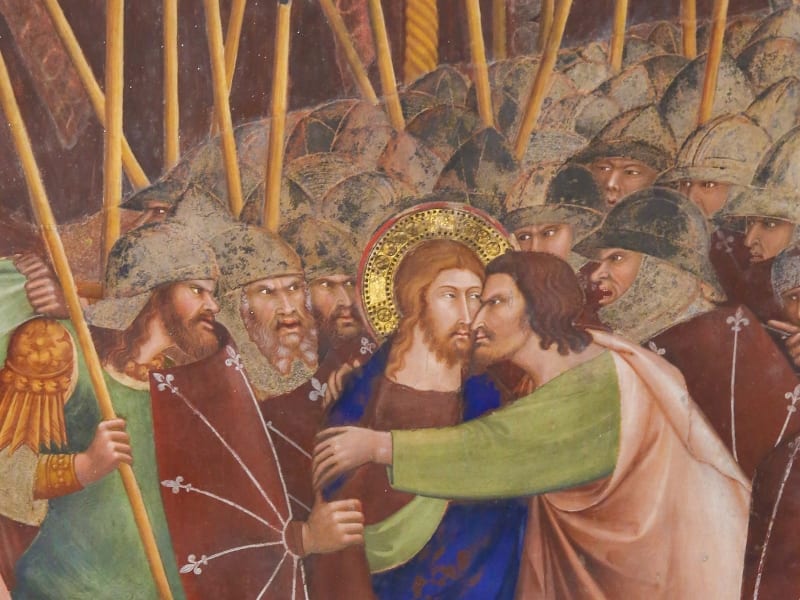Tuesday of Holy Week | Love in Times of Betrayal
BY KRISTIN HEYER | April 16, 2019
Today’s Readings

The weight of disillusioning headlines can stoke a growing sense of betrayal: the betrayal of our nation’s founding values; the betrayal of parents’ trust by church leaders; the betrayal of women by a cascade of #metoo allegations. Whereas the effects of violence and injustice are not new or isolated, sometimes the onslaught strikes a personal chord in a manner experienced as betrayal. In today’s Gospel, Jesus reminds us that he knows what it feels like to be betrayed by those close to us.
John’s account of the Last Supper also prompts us to remember our own limitations and sanctimonious tendencies. Perhaps our work for justice veers into a woke self-righteousness that actually distances us from others, or makes us—like Peter—oblivious to our own limitations and complicity. We may become more concerned with firing off a witty tweet than genuine encounter across difference or others’ needs closer at hand. Or maybe we avoid responsibility altogether when such headlines become too overwhelming, we simply opt out.

San Gimignano, Italy: Judas betrays Jesus with a kiss, 14th Century Fresco in the Collegiata of San Gimignano
Jesus shows steadfast love in the face of betrayal, washing and feeding his friends who will give him up and deny him in his hour of need. This is the merciful, courageous love Jesus invites us into as disciples, even in times that challenge us to our core.
For as Isaiah reminds us today, God formed us from our mother’s wombs to make us a light to the nations. It is out of our brokenness and vulnerability that we find strength to show love to survivors and repair our fractured institutions. We are called to insist on and embody life-giving alternatives in the face of betrayed values.
God is close to the brokenhearted. How can I show healing love to those feeling betrayed through a ministry of accompaniment and courageous work for change?
Kristin Heyer is professor of theological ethics at Boston College and her books include Kinship Across Borders: A Christian Ethic of Immigration (2012) and Prophetic and Public: the Social Witness of U.S. Catholicism (2006). Her work treats questions of moral agency, migration, the common good, and global ethics. She serves as co-chair of Catholic Theological Ethics in the World Church. Her husband, Mark Potter, is a former ISN board member.









Thank you, Kristin Heyer, for helping us understand what Jesus is doing. I had not imagined him feeding his betrayers, plural. But, of course you remind us that none of his followers rose to the occasion. And may you be consoled as you continue your many years of contributions to the Ignatian mission.
This speaks to me personally! “It is out of our brokenness and vulnerability that we find strength to show love to survivors and repair our fractured institutions. We are called to insist on and embody life-giving alternatives in the face of betrayed values.” I want to learn to do that!
Thank you Kristin. The power of our own vulnerability can be surprising, I guess Brene Brown has brought wider awareness of this recently. I recall, when studying Clinical Pastoral Education , that my own vulnerability was the greatest gift I had to share with many patients. Surrounded by doctors & nurses , who are solution oriented, to sit in the space of someone’s helplessness & uncertainty, breath the same air as they breathed, acknowledge my lack of ability to fix the broken bit of their spirit , as well as my own (whether they were worried about getting out of hospital alive, or if their cat would run away in their absence) often resulted in helping people shift emotionally and spiritually. And your article helps me to regard the anger and disappointment that I currently feel about the Church and never ending stories of child abuse in a different way. ( I live in Australia where a day doesn’t go by …….) Happy Easter
Thanks. It’s a grace. Showing love and understanding to survivors is an intense calling.